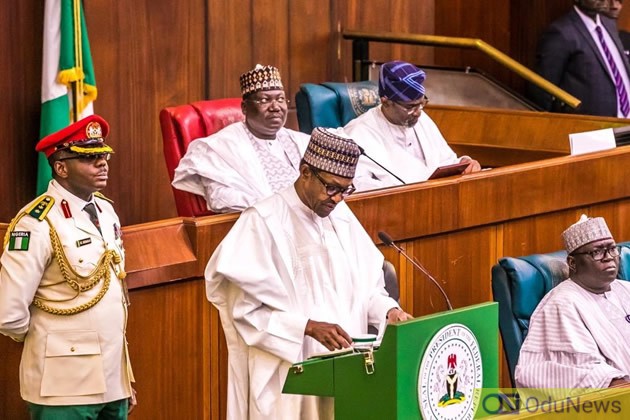The Organised Private Sector has faulted President Muhammadu Buhari’s borrowing plans to fund the 2023 budget.

The group noted that the borrowing plan will likely increase the country’s debt profile to N70 trillion by end of 2023, if caution is not taken.
OduNews reports that President Buhari presented the 2023 Appropriation Bill, last week christened: ‘Budget of Fiscal consolidation and Transition’, where he reeled out the achievements of his administration and projections for the coming year.
In its analysis, the OPS explained that with a budget of N20.51 trillion and a revenue projection of N9.73 trillion, which implies a deficit of N10.78 trillion, there is nothing in the current budget that gives assurance to businesses that better days lay ahead.
The sector noted that in all probability, the deficit will be much bigger by year end because of the track record of revenue under performance over the last couple of years.
Reacting on the budget, the Lagos Chamber of Commerce and Industry( LCCI), said that everything is wrong with the plan to issue N10.57 trillion (N8.8 trillion in new commercial loans and N1.77 trillion drawdown on bilateral and multilateral loans) new loans to finance the deficit at a time that the country was already placed on the watch list of some foreign bondholders.
Director General of LCCI, Dr. Chinyere Almona, noted that it is the exclusive use of debt to finance deficits that got the country into the situation where it cannot keep the revenue it is earning today, as the country uses the bulk of its revenue to settle interest payments.
“In the 2022 year-to-April, the interest payments were more than the revenue and it is most unlikely that the revenue will be more than interest payments in the full-year 2022 or even in 2023.”
Almona expressed relief that it was comforting that the 2023 budget was still at the proposal stage. “It behooves all well-meaning stakeholders to make constructive inputs to the presidency and the National Assembly now.
Almona proffered a more efficient alternatives to new borrowings, which include to issue equity to finance the deficit instead of using deb; break from the path in which the Federal Government only approaches the debt markets at home and abroad and never approaches the equity market at home or abroad.
She said Nigeria should henceforth use equity financing as an exclusive way of funding budget deficits.
“If we embrace equity financing, we do not have to make huge interest payments and we can use some of the proceeds of our equity issuance to pay some down debt, to make the fiscal situation more sustainable and rekindle much-needed confidence in our economic and fiscal resilience.
She noted that the country’s approach should not be to continue issuing only debt, especially with the increasingly unbearable burden of interest payments that expose our fiscal vulnerably.
The Chief Executive Officer(CEO), Centre for the Promotion of Private Enterprise (CPPE), Dr Muda Yusuf, said the budget has amplified a troubling fiscal outlook for Nigeria economy.
Muda disclosed that the Central Bank of Nigeria(CBN) may likely finance the coming year’s fiscal deficit given the country’s dwindling revenue performance trajectory.
He opined that the government should focus on returns on investment from its assets especially within the maritime, oil and gas enterprises and made a case for drastic budget reforms whereby budgetary allocation must reflect urgent national economic priorities, adding that there are also concerns about value for money and other forms of fiscal leakages.
“With additional new borrowing of #8.8 trillion, the debt profile will be inching close to 50 trillion naira by May next year. If we take into account the borrowing from the CBN (ways and means), which is currently about N20 trillion, we will have a total debt of N70 trillion by the end of 2023. This should be a cause for concern.
On the forward, the CPPE boss suggested that government owned enterprises managing huge economic assets need to justify the value of assets at their disposal.
“Returns on investment on those assets have been consistently sub optimal for many years.
“Lapses in the petroleum upstream ecosystem need to be urgently addressed.
The foreign exchange policy regime is adversely impacting the business environment and needs to be urgently addressed. Weak private sector performance would naturally affect non oil tax revenues.”
He said the incoming government would need to make tough policy choices to reset Nigeria’s economy.

Submit press release, news tips to us: tips@odunews.com | Follow us @ODUNewsNG
